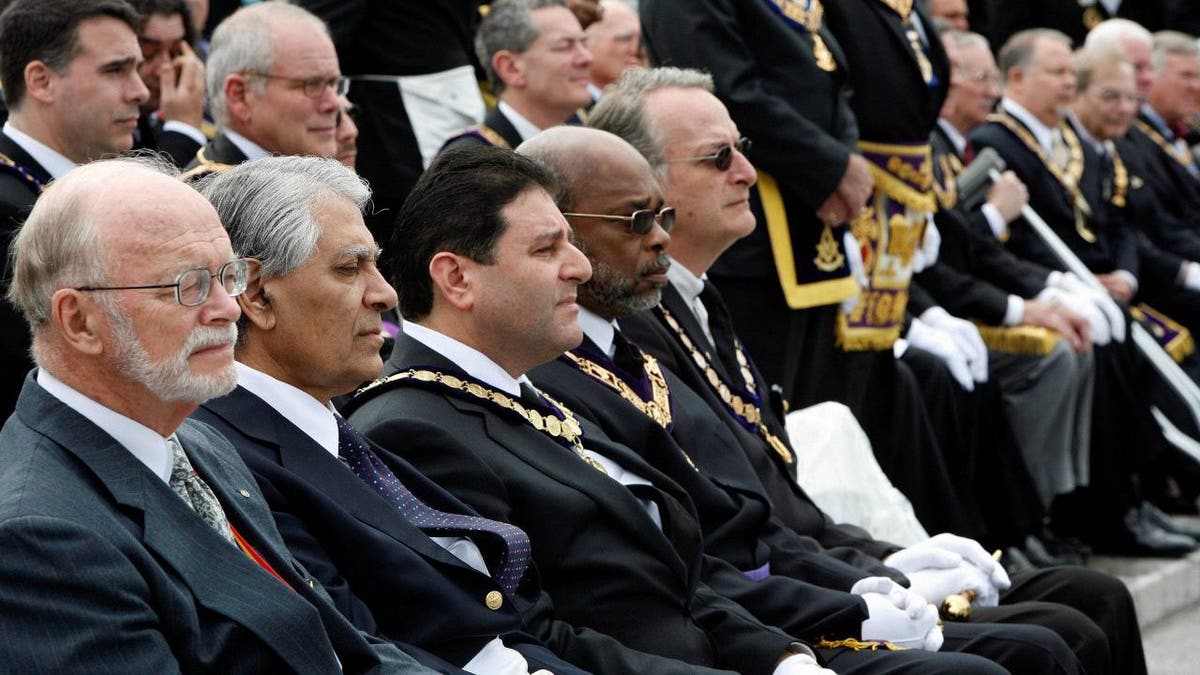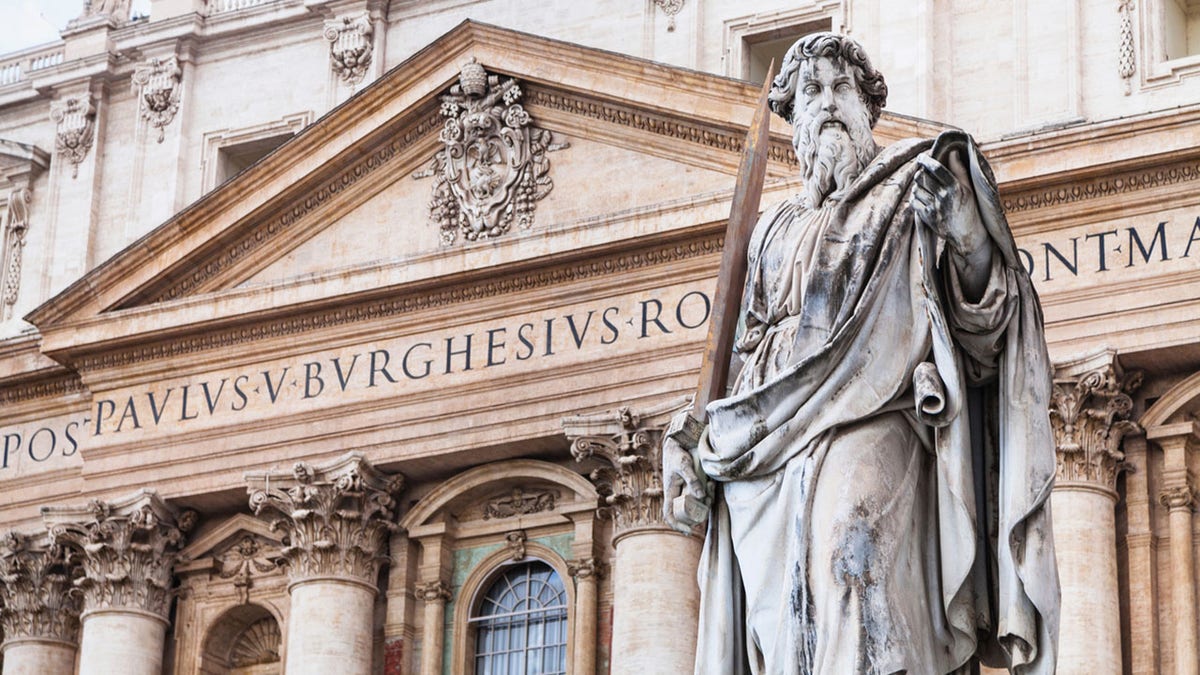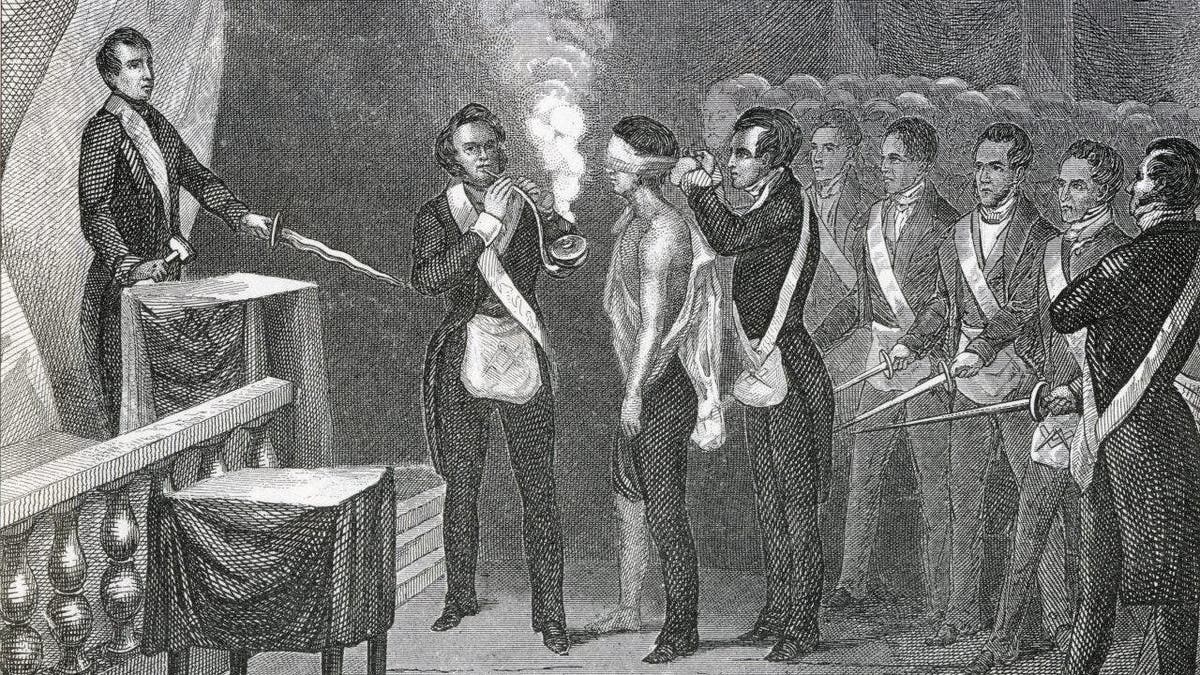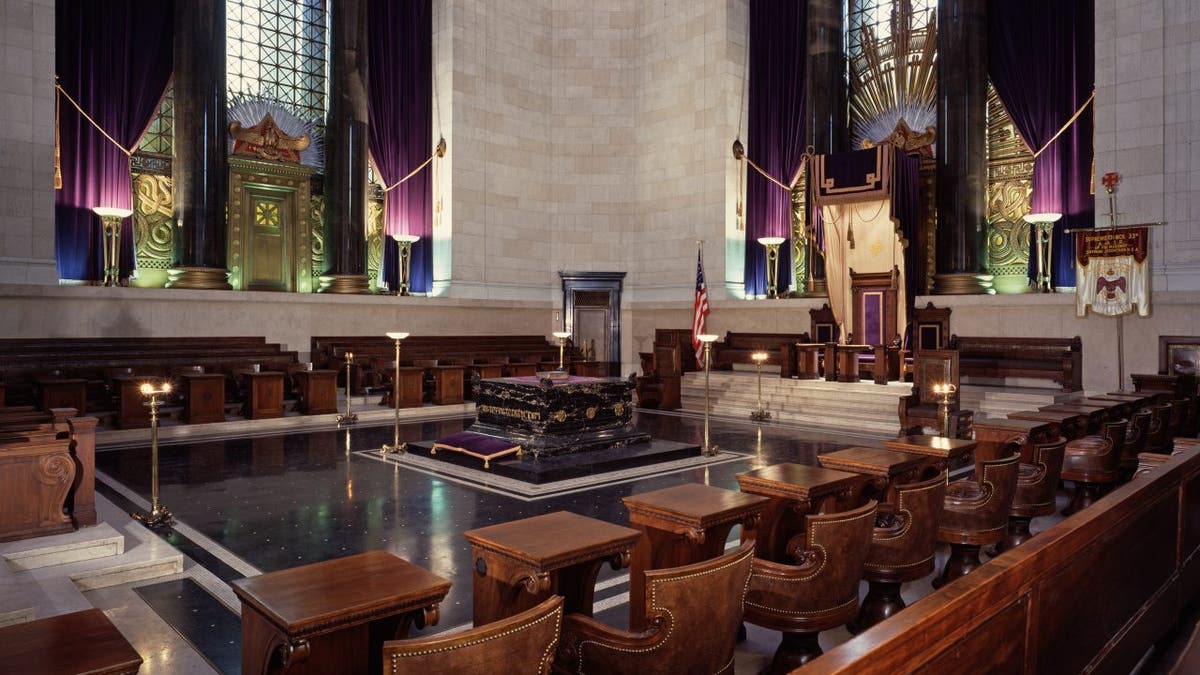Fox News Flash top headlines for November 15
Fox News Flash top headlines are here. Check out what's clicking on Foxnews.com.
The Vatican's Dicastery for the Doctrine of the Faith (DDF) has reaffirmed the Catholic Church's teachings that laity or clerics participating in Freemasonry are in "a state of grave sin."
The DDF released the Nov. 13 document to the public with the signatures of Pope Francis and the DDF Prefect Cardinal Victor Fernández, urging the faithful not to participate in or affiliate with Freemasonry groups.
"On the doctrinal level, it should be remembered that active membership in Freemasonry by a member of the faithful is forbidden because of the irreconcilability between Catholic doctrine and Freemasonry," the document reads, citing the 1983 "Declaration on Masonic Associations" by Cardinal Joseph Ratzinger, who would go on to become Pope Benedict XVI.

The Freemasons listen during a wreath-laying ceremony at the National World War II Memorial on the National Mall in Washington, D.C, on the third and final day of the 9th World Conference of Masonic Grand Lodges on May 10, 2008. (Aude GUERRUCCI/AFP via Getty Images)
"Therefore, those who are formally and knowingly enrolled in Masonic Lodges and have embraced Masonic principles fall under the provisions in the above-mentioned Declaration. These measures also apply to any clerics enrolled in Freemasonry," the document continues.
The clarification was requested by Bishop Julito Cortes of the Philippines, who raised concerns about growing interest in the secret society in his country.
Freemasonry, the world's largest secret society with millions of members scattered across almost every country in the world, established its first Grand Lodge in England in 1717.
The society swears oaths of secrecy, fellowship and fraternity among members and has accumulated a vast catalog of rituals, ceremonial attire and secret signals between masons. These aesthetic affectations often use Christian imagery despite being used for non-Christian rituals.

A statue of Paul the Apostle stands in front of St. Peter's Basilica in the piazza San Pietro in Vatican City. (iStock)
Freemasons are usually expected to profess belief in a "supreme being" but are not obligated to believe in any specific deity.
Members of the Catholic Church are not allowed to join or affiliate with Freemasonry groups due to the organizations' deistic, non-Christian teachings about divinity.
Additionally, the secretive and ritualistic nature of Freemason lodges has often led to accusations from Catholic leaders of idolatry and clandestine opposition to Christianity.
POPE FRANCIS REAFFIRMS PRIESTHOOD IS 'RESERVED FOR MEN,' CANNOT BE CHANGED TO INCLUDE WOMEN

"An Apprentice Is Initiated Into Freemasonry," from a 19th century illustration of a Freemasonic ritual. (Universal History Archive/Universal Images Group via Getty Images)
However, Freemason associations are far from uniform, and Masonic culture differs greatly between different rites, sects, lodges and national bodies of Freemasonry. The Catholic Church has fought most aggressively with Masonic bodies in continental Europe, which boasts a more ideological tone.
Freemasonry in the U.S. and the U.K., while still linked to overseas lodges, is reportedly more socially and professionally focused.
Freemasonry was rendered an excommunicable offense in 1738 by Pope Clement XII, who called the secret society "depraved and perverted."
The 1983 document by then-Cardinal Ratzinger cited in the Vatican's latest document states that the "negative judgment in regard to Masonic association remains unchanged since their principles have always been considered irreconcilable with the doctrine of the Church and therefore membership in them remains forbidden."

Masonic Scottish Rite Chamber at a lodge in Washington, D.C. (Carol M. Highsmith/Buyenlarge/Getty Images)
CLICK HERE TO GET THE FOX NEWS APP
The 1983 document adds, "The faithful who enroll in Masonic associations are in a state of grave sin and may not receive Holy Communion."
The Vatican recommended a pastoral approach to the issue of Freemasonry in the Philippines, suggesting national bishops push for greater catechesis on the subject among the laity.
"On the pastoral level, the Dicastery proposes that the Philippine Bishops conduct catechesis accessible to the people and in all parishes regarding the reasons for the irreconcilability between the Catholic Faith and Freemasonry."
It is debated whether joining a Freemasonic lodge incurs an automatic excommunication from the Catholic Church under Canon Law.




















